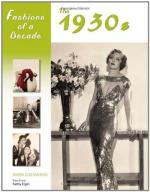|
This section contains 109 words (approx. 1 page at 300 words per page) |

|
The 1930s were notable as a decade of remarkable experiments in education, especially at the collegiate level. The Depression challenged many educators' traditional assumptions about teaching as surely as it challenged most Americans' economic and political assumptions. Conservative university curriculum and the role of the college in shaping the economic elite were rethought, in part because of the presence of alternative institutions such as the labor college and the folk school. During the 1930s almost every major American city had a labor college. These schools instituted several educational advances that became common in subsequent decades and challenged mainstream educators to rethink their instructional approaches.
|
This section contains 109 words (approx. 1 page at 300 words per page) |

|




